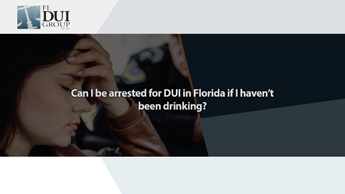Understanding Florida’s Implied Consent Law

Florida law requires all drivers to submit to chemical testing if they are detained on suspicion of DUI. While you are legally allowed to refuse chemical testing (in most circumstances), there are severe penalties for doing so, and you can still be charged and convicted of DUI. Every driver gave the police consent to administer BAC tests just by getting behind the wheel of their car. In this article, the Orlando DUI attorneys at FL DUI Group will discuss Florida’s implied consent law and how it relates to various circumstances.
Florida’s implied consent law
Under Florida Statute Section 316.1932, any driver who is operating a vehicle in the state automatically agrees to take a chemical test to check for alcohol or drugs if you are lawfully arrested for suspicion of DUI. You do not, however, have to submit to field sobriety tests. You must submit to chemical tests only. There are three different types of chemical tests administered by the state. Those include:
- Breath tests – These are the most common tests administered by police officers. The officer will ask you to blow into a device and if the device registers a BAC of .08 or greater, you will be arrested on suspicion of DUI.
- Urine tests – Breathalyzer tests cannot determine whether or not you have drugs in your system. Instead, law enforcement must administer a urine test to check for the presence of drugs. If the officer has probable cause to believe that you were under the influence of a controlled substance, they will likely administer a urine test. The test will be sent to a facility equipped to process these tests.
- Blood tests – State law allows Florida police to compel a drug test under three different scenarios: When a breath or urine test is impractical or impossible, there is probable cause to believe the suspect caused a death or serious bodily injury in a DUI accident, or the suspect voluntarily consents to a blood test.
What happens if I refuse to submit to a chemical test?
Drivers who refuse to submit to chemical testing are automatically guilty of a crime. You can be charged with this crime in addition to DUI. Penalties for refusing a chemical test include:
- License suspension – A driver’s first refusal to submit to a breath, urine, or blood test can result in the suspension of their driver’s license for an entire year. Second or third refusals can result in a license suspension of 18 months.
- Jail time and fines – If a driver has already been convicted of refusing to submit to a chemical test, a second refusal can be charged as a Class 1 misdemeanor. Class 1 misdemeanors are punishable by up to 1 year in jail, 12 months probation, and a fine of $1,000.
Talk to an Orlando DUI Attorney Today
FL DUI Group represents the interests of those who have been charged under Florida’s implied consent law and are facing DUI charges. Call our Florida DUI defense attorneys today to schedule an appointment, and we can begin preparing your defense right away.








